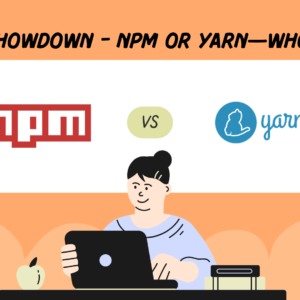In today’s digital world, choosing the right database is crucial for your application’s success. With two main types of databases—SQL and NoSQL understanding their differences can help you make an informed decision. So, let’s dive into the exciting world of databases!
What is SQL?
SQL, or Structured Query Language, is a type of database that uses tables to store data. Think of it like a spreadsheet where data is organized in rows and columns. For example, a table might contain information about products with columns for ID, Name, and Price. SQL databases are known for their ability to handle complex queries and ensure data consistency.
What is NoSQL?
NoSQL stands for “not only SQL” and refers to a variety of database types that do not use traditional table structures. Instead, NoSQL databases can store data in formats like documents, key-value pairs, or graphs. For instance, a NoSQL database might store user profiles as JSON documents, allowing for more flexible data organization.
Key Differences
Understanding the differences between SQL and NoSQL can help you choose the right one for your needs.
| Feature | SQL | NoSQL |
|---|---|---|
| Structure | Table-based | Document, key-value, graph |
| Schema | Fixed schema | Dynamic schema |
| Scalability | Vertical scaling (more powerful servers) | Horizontal scaling (more servers) |
| Transactions | ACID compliance | BASE (Basically Available, Soft state, Eventually consistent) |
| Use Cases | Banking systems, CRM applications | Real-time web apps, big data |
Which is Faster: SQL or NoSQL?
When it comes to speed, NoSQL databases often have the edge. They are designed to handle large volumes of unstructured data quickly. For example, if you’re working with a social media application that requires fast read and write operations, NoSQL might be your best bet. However, SQL databases can be faster for complex queries involving multiple tables due to their structured nature.
Is It Better to Learn SQL or NoSQL?
Both SQL and NoSQL have their advantages. Learning SQL is essential for understanding relational databases and is widely used in many industries. On the other hand, NoSQL is increasingly popular due to its flexibility and scalability. If you’re just starting out, it might be beneficial to learn both to understand their unique features.
Use Cases
When to Use SQL
- Banking Systems: SQL databases are perfect for applications that require strong consistency and complex transactions.
- E-commerce Platforms: They can efficiently manage inventory data and customer transactions.
When to Use NoSQL
- Real-Time Applications: Apps like chat systems or gaming platforms benefit from NoSQL’s speed and flexibility.
- Big Data Analytics: When dealing with massive amounts of unstructured data, NoSQL databases excel at handling diverse data types.
Tips on Choosing Between SQL and NoSQL
- Consider Your Data Structure: If your data is highly structured and relationships between data points are crucial, go with SQL.
- Think About Scalability: For applications expecting rapid growth or fluctuating data needs, NoSQL offers better scalability options.
- Evaluate Your Team’s Expertise: If your team has experience with relational databases, starting with SQL might be easier.
Conclusion
Choosing between SQL and NoSQL depends on your specific needs. Both have unique strengths that cater to different scenarios. If you need structured data management with complex queries, SQL is your go-to solution. However, if you’re looking for flexibility and speed in handling large volumes of unstructured data, consider using NoSQL.
In the end, whether you choose SQL or NoSQL, understanding their differences will empower you to build better applications. So which one will you choose? The answer lies in your project’s requirements!












